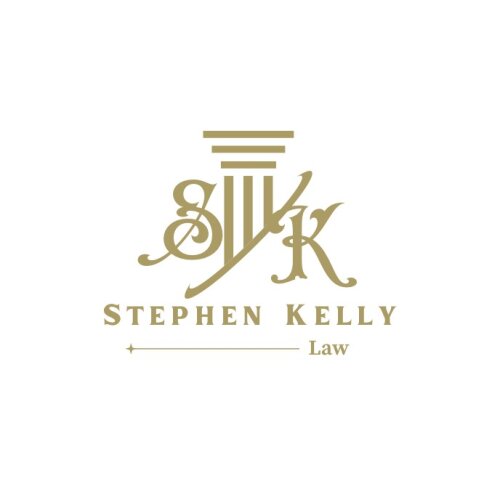Best White Collar Crime Lawyers in Dublin
Share your needs with us, get contacted by law firms.
Free. Takes 2 min.
List of the best lawyers in Dublin, Ireland
About White Collar Crime Law in Dublin, Ireland
White collar crime refers to financially motivated, non-violent crime committed by businesses and government professionals. In Dublin, Ireland, these crimes are subject to strict laws and can include activities such as fraud, embezzlement, money laundering, and other forms of corporate malfeasance. The legal framework for addressing white collar crime in Dublin encompasses both criminal and civil statutes at the national and European Union levels, aiming to maintain the integrity of financial markets, protect consumers, and ensure fair business practices.
Why You May Need a Lawyer
There are several scenarios in which individuals or businesses may require legal assistance regarding white collar crime:
- **Investigation:** If you or your business are under investigation for suspected white collar crime, legal representation is crucial to protect your rights and interests.
- **Compliance:** Businesses may need advice on legal compliance to avoid inadvertently committing white collar crimes.
- **Charges and Prosecution:** Facing charges for white collar crime can have severe consequences, including fines and imprisonment. Skilled legal defense is necessary to navigate the complexities of the legal system.
- **Victim Representation:** If you are a victim of white collar crime, a lawyer can help you recover losses and seek justice.
- **Regulatory Issues:** Lawyers can provide assistance with understanding and adhering to the various regulations that govern corporate conduct and financial transactions.
Local Laws Overview
The legal landscape for white collar crime in Dublin, Ireland, involves several key statutes and regulations:
- **Criminal Justice (Theft and Fraud Offences) Act 2001:** This act consolidates laws related to theft and fraud, covering offenses such as deception, forgery, and obtaining services by false pretenses.
- **Companies Act 2014:** This legislation includes provisions for corporate governance, regulatory compliance, and penalties for fraudulent trading and mismanagement.
- **Anti-Money Laundering (AML) Regulations:** These regulations require businesses, particularly financial institutions, to implement strict measures to prevent and detect money laundering activities.
- **Data Protection Act 2018:** This act governs the processing of personal data and includes provisions related to cybercrime and data breaches.
- **European Union (Market Abuse) Regulations 2016:** These regulations address market manipulation and insider trading, imposing severe penalties for violations.
Frequently Asked Questions
1. What is classified as white collar crime in Dublin?
White collar crime in Dublin includes offenses such as fraud, embezzlement, tax evasion, money laundering, insider trading, and cybercrime.
2. How serious are the penalties for white collar crime in Dublin?
Penalties can be severe, ranging from substantial fines to lengthy prison sentences, depending on the nature and severity of the crime.
3. Can businesses be held liable for white collar crimes?
Yes, businesses can be held liable, particularly if it is proven that they failed to comply with regulatory requirements or were directly involved in illegal activities.
4. What should I do if I suspect white collar crime in my organization?
It is advisable to seek legal advice immediately. An experienced lawyer can help handle internal investigations and advise on reporting procedures.
5. Is it possible to challenge a white collar crime conviction?
Yes, convictions can be challenged through an appeals process. A lawyer can provide guidance on the merits of an appeal and the likelihood of success.
6. What are some common defenses against white collar crime charges?
Common defenses include proving a lack of intent to commit a crime, demonstrating adherence to compliance protocols, or showing that the allegations are unfounded.
7. How long do investigations into white collar crime typically take?
Investigations can be lengthy, often taking several months or even years, depending on the complexity of the case.
8. Are there any specific agencies that handle white collar crime in Ireland?
Yes, agencies such as the Garda National Economic Crime Bureau (GNECB) and the Office of the Director of Corporate Enforcement (ODCE) are involved in investigating and prosecuting white collar crime.
9. Can whistleblowers receive protection under Irish law?
Yes, the Protected Disclosures Act 2014 offers protections to whistleblowers who report wrongdoing in the public interest.
10. How can I find a lawyer specializing in white collar crime in Dublin?
You can find specialized lawyers through professional legal organizations, personal referrals, or by searching for law firms with experience in white collar crime cases.
Additional Resources
- **Garda National Economic Crime Bureau (GNECB):** They investigate serious and complex economic crimes. - **Office of the Director of Corporate Enforcement (ODCE):** They focus on corporate compliance and enforcements. - **Law Society of Ireland:** They provide a directory of licensed legal practitioners. - **Citizens Information:** Offers free advice on understanding your rights and responsibilities.
Next Steps
If you need legal assistance with a white collar crime issue in Dublin, consider taking the following steps:
- **Consult a Specialist Lawyer:** Look for legal professionals who specialize in white collar crime. - **Gather Documentation:** Collect all relevant documents and evidence that pertain to your case. - **Schedule a Consultation:** Arrange a meeting to discuss your situation, understand your legal options, and plan your strategy. - **Follow Legal Advice:** Adhere to the guidance and recommendations provided by your lawyer to ensure the best possible outcome.
Taking prompt and informed action can significantly impact the resolution of your case, safeguarding your interests and future.
Lawzana helps you find the best lawyers and law firms in Dublin through a curated and pre-screened list of qualified legal professionals. Our platform offers rankings and detailed profiles of attorneys and law firms, allowing you to compare based on practice areas, including White Collar Crime, experience, and client feedback.
Each profile includes a description of the firm's areas of practice, client reviews, team members and partners, year of establishment, spoken languages, office locations, contact information, social media presence, and any published articles or resources. Most firms on our platform speak English and are experienced in both local and international legal matters.
Get a quote from top-rated law firms in Dublin, Ireland — quickly, securely, and without unnecessary hassle.
Disclaimer:
The information provided on this page is for general informational purposes only and does not constitute legal advice. While we strive to ensure the accuracy and relevance of the content, legal information may change over time, and interpretations of the law can vary. You should always consult with a qualified legal professional for advice specific to your situation.
We disclaim all liability for actions taken or not taken based on the content of this page. If you believe any information is incorrect or outdated, please contact us, and we will review and update it where appropriate.












